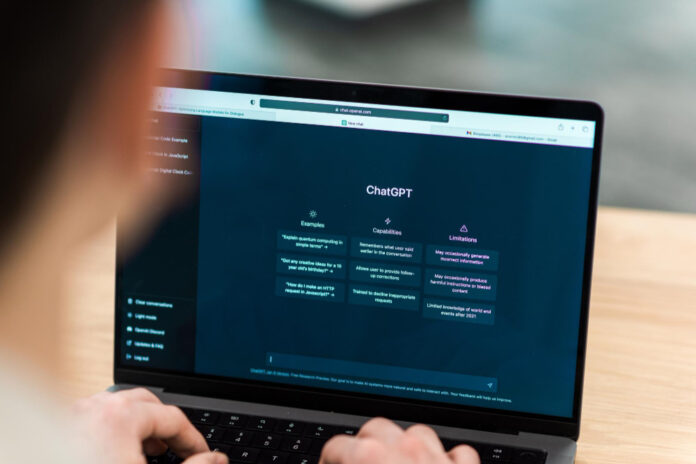ChatGPT-generated ideas enhance creativity for less inherently creative writers but reduce the diversity of unique ideas, posing a societal dilemma
A study suggests that ideas generated by the AI system ChatGPT can help boost the creativity of writers who lack inherent flair – albeit at the expense of variety.
Professor Oliver Hauser, a co-author of the research from the University of Exeter, stated that the results pose a social dilemma.
“It may be individually beneficial for you to use AI, but as a society, if everyone used AI, we might all lose out on the diversity of unique ideas,” he said. “And, arguably, for creative endeavours, we might sometimes need the ‘wild’ and ‘unusual’ ideas.”
Embed from Getty ImagesThe team asked 293 people to name 10 words that differed as much as possible from each other, allowing them to probe participants’ inherent creativity.
The researchers then randomly assigned participants one of three topics – an adventure in the jungle, on the open seas, or a different planet – and asked them to write an eight-sentence story appropriate for teenagers and young adults.
While a third of participants were offered no assistance, the others were split between those allowed to have one three-sentence starting idea pre-generated by ChatGPT, and those who could request five such ideas.
Overall, 82 of 100 participants took up the offer of a single AI-generated idea, while 93 of 98 participants offered access to five such ideas took at least one – and almost a quarter requested all five.
A further 600 participants, unaware of whether AI-generated ideas were used, read the resulting stories and rated factors relating to novelty and usefulness – such as whether the story was publishable – on a nine-point scale.
The results, published in the journal Science Advances, reveal that access to AI boosted these scores, with greater access associated with a larger effect: people with the option of five AI-generated ideas had an 8.1% increase, on average, in novelty ratings for their stories compared with people lacking the option of such help, while usefulness ratings rose by 9% on average.
“The effect sizes are not very large, but they were statistically significant,” said Dr Anil Doshi, a co-author of the study from University College London.
Stories written by people with the option of AI-generated ideas were also deemed more enjoyable, more likely to have plot twists, and better written.
However, it was writers with low inherent creativity that benefited most.
“We do not find that the most inherently creative people’s stories are being ‘supercharged’ from AI ideas – this group of people is highly creative with and without the use of AI,” said Doshi.
The team also found that participants with access to AI-generated ideas produced stories with greater similarity, something Doshi suggested is due to AI generating relatively predictable story ideas.
Hauser emphasized the importance of such studies. “Evaluating the use of AI will be essential in making sure that we reap the benefits of this potentially transformative technology without falling prey to potential shortcomings,” he said.
Analysis:
Political Perspective:
The findings of this study have significant political implications, particularly in the realm of technology regulation and education. Policymakers must navigate the balance between fostering innovation through AI tools and ensuring the preservation of human creativity and diversity in artistic expression. This balance will be crucial in drafting legislation that encourages responsible AI usage while protecting the unique contributions of individual creators.
Social Perspective:
The societal impact of AI-assisted creativity is profound, especially in the context of cultural and artistic diversity. While AI can democratize creativity by aiding those who struggle with it, the homogenization of creative outputs could lead to a less vibrant cultural landscape. Society must consider how to integrate AI tools without sacrificing the richness that comes from varied human experiences and perspectives.
Racial Perspective:
AI-generated content could inadvertently reinforce existing biases and stereotypes present in the training data. This raises concerns about the inclusivity and representation of stories generated with AI assistance. Ensuring that AI tools are developed and trained with diverse datasets is crucial to mitigate these risks and promote equity in creative expression.
Gender Perspective:
The study highlights the potential for AI to assist underrepresented groups in creative fields, including women and other marginalized genders. However, reliance on AI-generated ideas may also perpetuate gender biases if the AI systems are not designed and trained to recognize and avoid such biases. A gender-sensitive approach to AI development is necessary to empower all writers without reinforcing harmful stereotypes.
Economic Perspective:
Economically, AI’s role in boosting creativity could have mixed outcomes. On one hand, it can enhance productivity and innovation in industries reliant on creative content, potentially leading to economic growth. On the other hand, the reduction in uniqueness and diversity of ideas could impact the competitive edge and value of creative industries. Striking a balance between leveraging AI for economic benefits and maintaining the distinctiveness of creative outputs will be essential.
